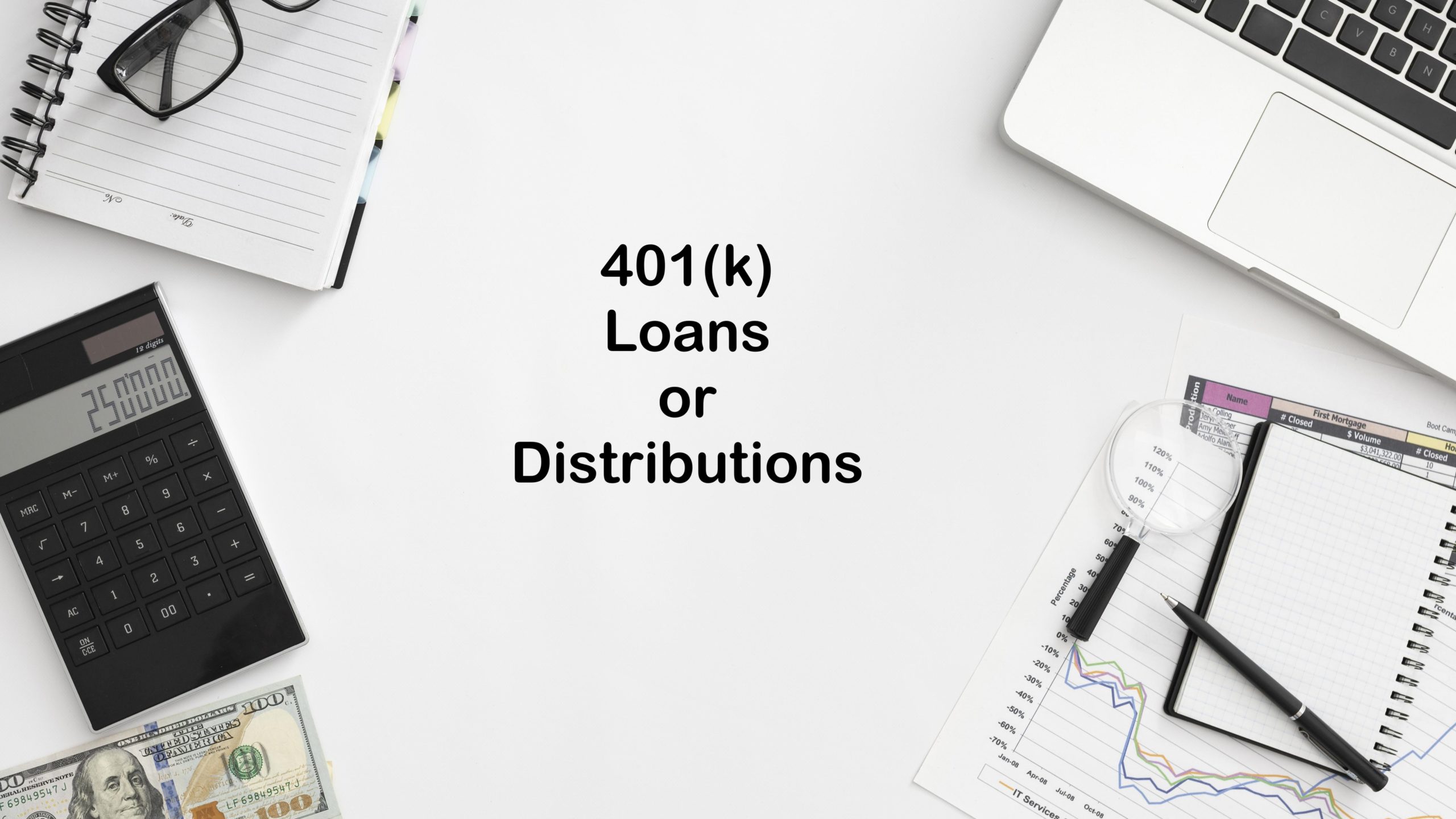In part 1 of “Assessing Retirement Funds According to the CARES Act” we discussed with a broad overview that if you are impacted by the coronavirus and thinking about cashing out your 401(k) retirement funds what the penalties and taxes would be. Part 2 below talks about 401(k) loans versus 401(k) distributions in assessing Retirement Funds during the coronavirus.
401(k) loans versus 401(k) distributions: Which to choose?
With these new rules, the lines between a 401(k) loan and withdrawal can become a bit blurred. Both let you access up to $100,000 of your retirement funds penalty and tax-free, but there are slight differences.
If you take a withdrawal:
- Repayment isn’t required.
- There’s no withdrawal penalty.
- It will be taxed as income initially, though you can claim a refund if you pay back the distribution in three years.
- You have tax options.
If you take a loan:
- Repayment is required within a specified time frame, typically five years.
- The loan amount is not taxed initially, and there is no penalty. However, if you can’t pay it back in five years, the outstanding balance will be taxed as if it were a withdrawal, and you’ll also pay the 10% early withdrawal penalty.
- All loan payments due in 2020 can be delayed for up to one year from the time you take out the loan.
- If you leave your job, you have until mid-October of the following year to pay back the entirety of the loan. If you don’t pay it back, you’ll be hit with early withdrawal taxes and penalties.
Bottom line. If you’re confident you’ll stay with your current employer for the next five years, a loan may be a better option than a withdrawal. Workers who stay with their employer will have five years to pay back the funds before facing taxes or penalties, and the interest paid back into the account can help make up for lost returns.
However, if a new job is on the horizon and you need to access retirement funds, a coronavirus-related withdrawal may be more prudent, considering 86% of those who change jobs with outstanding 401(k) loans fail to pay them back in time. You’ll be taxed on the withdrawal initially, but you’ll have the three-year period to pay it back and get a refund on those taxes.
It’s important to note that employers must choose to amend their existing policies regarding loans and distributions to accommodate the provisions in the CARES Act. Moreover, not all plan sponsors offer 401(k) loans, and distributions are still at the employer’s discretion. Be sure to consult with your employer on plan specifics before considering a loan or withdrawal.
Ok, still considering a coronavirus-related distribution then check out Part 3 of our Assessing Retirement Funds. In Part 3 of a “Coronavirus-related Distribution” we will talk about avoiding high-interest debt, housing problems and how to meet other basic needs.
Business photo created by freepik – www.freepik.com
